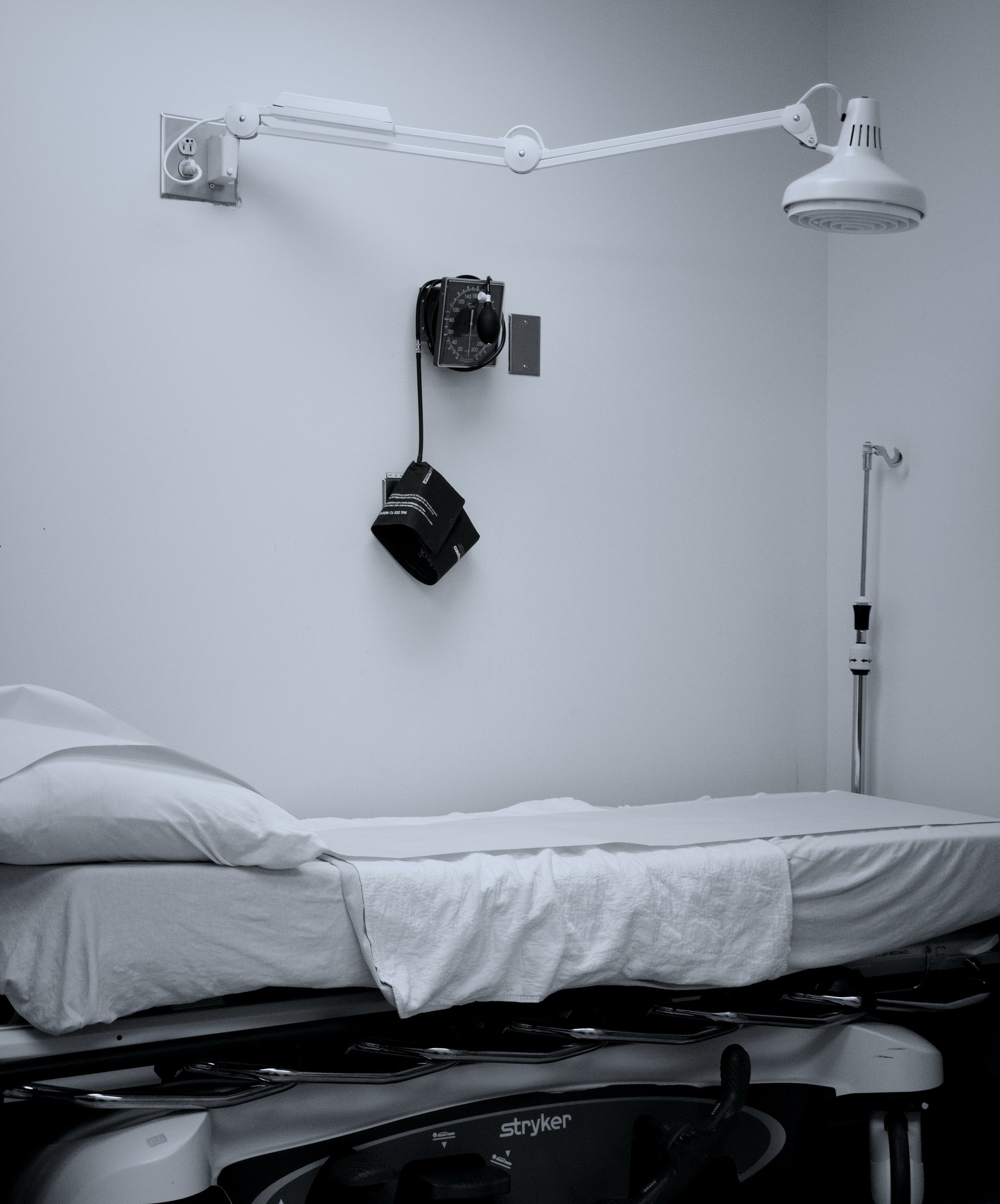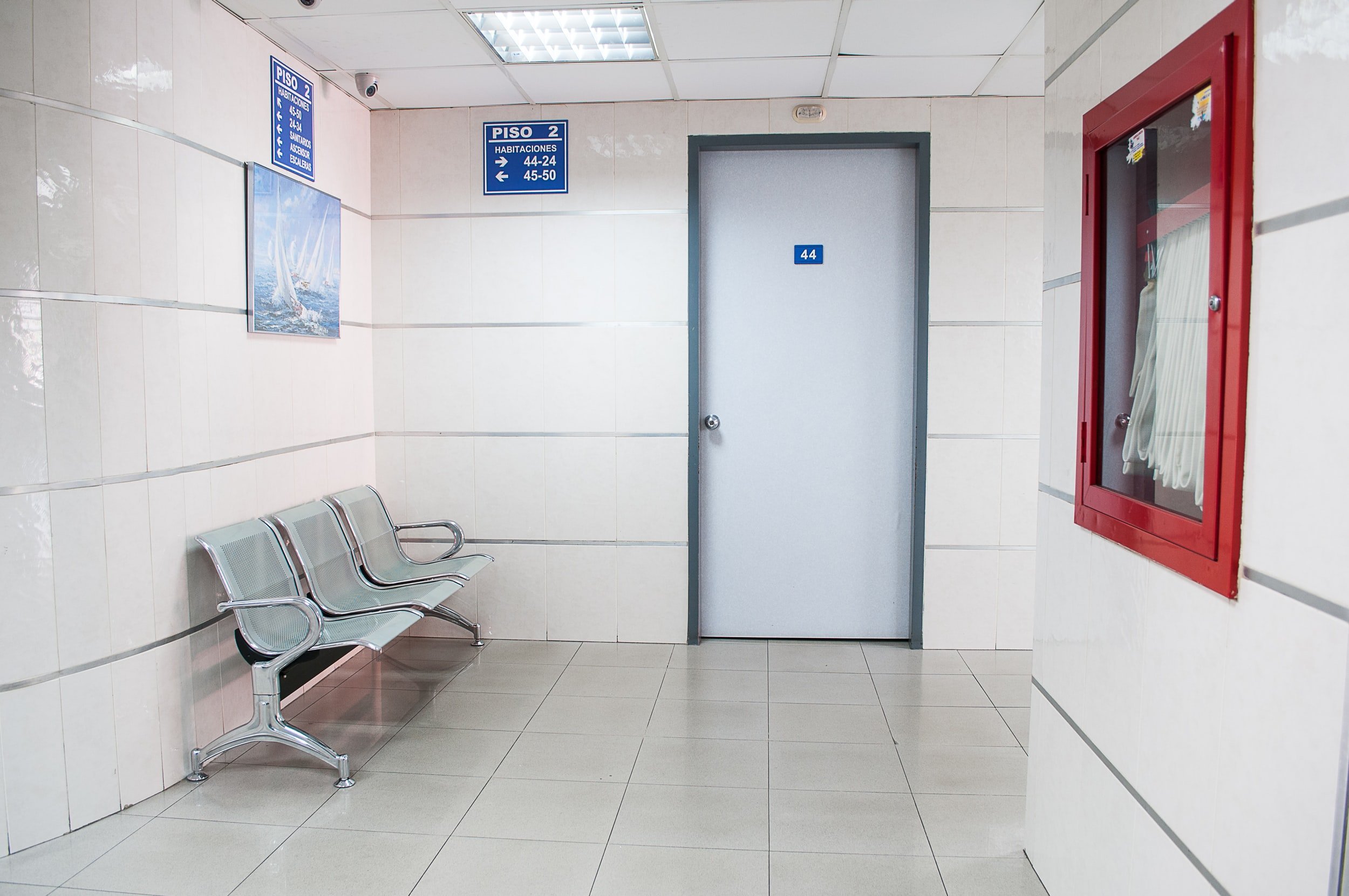How the "menopause is natural” narrative is a damaging one
If you Google menopause, a long list of symptoms appears. There may be a mention of how menopause symptoms are unique from person to person and advice not to take the list of symptoms at face value. But that part may be skipped over, leading straight into a paragraph on hysterectomies and hormone replacement therapy (HRT). This paints menopause as a well-structured process with simple solutions. It was only when I began to search for research papers on menopause in India that I uncovered a glaring problem: in conversations about menopause, authentic experiences had been left out completely.
Image credit: A. Krivitskiy via Unsplash
“In conversations about menopause, authentic experiences had been left out completely.”
Menopause is the one-year anniversary of a person’s last period. Since a person is born with a finite number of eggs in their ovaries, at a certain age, usually between 35 and 55, the number of eggs reaches below a threshold. Oestrogen—the hormone responsible for retaining and maintaining this constant—begins to fluctuate from its cyclical nature. As oestrogen governs more functions than just the menstrual cycle, decreasing hormone levels also result in a spectrum of symptoms throughout the body. For example, oestrogen plays a key role in controlling body temperature, and a low oestrogen level can cause a sudden spike in body temperature known as a ‘hot flash’ or ‘hot flush’—a common symptom of menopause.
I decided to conduct my postgraduate research on menopause experiences of cis-women in India through qualitative interviews. My research asked: if women were reporting difficulty during their perimenopause (the 5–15 years of physiological changes leading up to menopause), were their negative experiences a result of not making use of the available medical facilities? Since COVID-19 had limited my sample to middle-class women with access to Zoom, my participants were all literate and had easy access to hospitals and gynaecologists. But by the end of the first interview, it was clear that I had a lot to learn. My ignorance stemmed from a combination of my own privilege, and my education: studying science had distanced me from social issues and structures. By the end of my 30th interview, I had uncovered just how entwined social and health inequities are.
One of the most common phrases I heard was “it’s natural”. While menopause is indeed a natural phenomenon—after all, periods do eventually stop—calling menopause ‘natural’ seems to be doing more harm than good. If women are not accessing health infrastructure, and if health infrastructure is barely covering (or over-medicalising) the menopause, a deep dive into the ‘natural’ narrative may uncover some truths about where these health gaps lie. In the words of the women themselves, here is why the concept of menopause as ‘natural’ is both born from social inequities, and why using it perpetuates health inequities.
Calling it natural is a coping mechanism caused by lack of support
“Natural actually sounds good but I wish it was not traumatic. Not painful. I wish it was like, once you decide you don’t want to have kids you switch it off and everything stops. That would be more natural for me.”
Image credit: Unsplash
A menopausal support system requires two systems, each depending on the other to be effective: the social system and the medical system. While good gynaecologists may be available, most menopause symptoms do not have quick fixes. Dr Shaibya Saldanha, a gynaecologist in Bangalore, India, stressed the fact that menopause does not need to be a medical phenomenon. At the same time, she made clear that a natural process does not mean one without dietary and lifestyle interventions. For example, during perimenopause, sleep should increase while the body adapts to hormonal changes. However, “Women normally run on six hours of sleep … .They close the house down in the kitchen and feed every single person who eats at different times. And then they go to sleep and normally they would get up at 5:30–6:00 and start the next day.”
Solutions may appear feasible—such as sleeping for longer or shifting household duties to another family member—but support is often lacking. In a culture where gender roles are so deeply ingrained, social inequities play a role in menopause experiences. For example, the COVID-19 pandemic added to the workload of urban women, and this stress alone could have increased hot flashes and emotional fluctuations. Further, stigma surrounding menstruation continues into menopause. In some interviews, the women were unable to explain their menopause symptoms to their husbands because they had been discouraged from talking about their reproductive health during puberty.
This combination of shame and the lack of support at home leads women to use the word “natural” as a way of sweeping their health under the rug. If their health is not taken seriously then it must be unimportant, and most bodily processes that aren’t given attention are natural ones. Thus, menopause and its accompanying symptoms, no matter how harrowing, must be natural too.
An ayurvedic doctor that I spoke to explained how she bridged this gap. When a menopausal woman enters her clinic, this doctor ensures that either the husband or another family member is present during the consultation.
“Everyone takes doctors seriously and our word weighs. That extra step in counselling makes a big difference in fighting stigma.”
Image credit: Unsplash
Natural processes are common, and therefore you will manage
“Once [women] speak to their family they are ridiculed. Women of our generation are convinced, and it is very unfortunate, by women themselves. By women of the previous generation. They themselves say, ‘Oh you take this all so seriously, it’s very natural. You make a big deal out of nothing.’ Mind you this is not said by men. This is said by previous generation women. They are the ones who find it ridiculous.”
Two generations ago, treatment for menopause did not exist, nor did women have access to healthcare facilities. Tasked with running a household, women put their own health last. Along with the stigma surrounding menstruation, women had no choice but to manage their menopause alone. One of the most important long-term effects of the change in oestrogen level is a decrease of calcium uptake in the body. People going through menopause are encouraged to increase or supplement their dietary calcium intake so that postmenopausal concerns such as osteoporosis and arthritis are prevented. Unfortunately, rather than appreciating the availability of medical advancements for their daughters, women often look down upon other women who seek medical assistance. Silently suffering is seen as a display of strength: “We never used to complain about our cramps,” becomes “We never went to hospitals”. The prevalence of osteoporosis and arthritis in this generation shows just how damaging social inequities can be for health outcomes.
Image credit: Unsplash
Women’s health doesn’t warrant relevant medical attention
“We have a doctor but we don’t go much to the gynaecologist because it [menopause] is a natural process.”
Both postmenopausal women whom I spoke with regretted not having a check-up at the gynaecologist’s office. Yes, menopause is not a disease and nor is it a disorder, but, at the very least, a blood test to ensure that calcium and vitamin levels are normal is a must.
But the narrative around women’s reproductive health has always been ‘to manage’. Menstrual cramps in the middle of a class? Keep your head down and power through. A miscarriage? You’re shooed out the hospital door and expected to deal with the trauma on your own. Polycystic Ovary Syndrome? Despite it becoming an increasingly common condition, there is little progress in medical care provision. You’re handed a set of birth control pills and told to manage the side effects. Similarly, self-managing your menopause transition is the expectation. In fact, a woman who did seek medical help was dismissed by her gynaecologist who said, "Menopause is a part of life that everyone manages through.”
When it comes to menopause, unless your symptoms can be treated by medical intervention, there’s no space for a person going through menopause to seek guidance or support. “You have to stop everyone from removing your uterus,” was a common sentiment heard during my interviews with women. Instead of broadening the kind of support a medical environment can offer, menopause is medicalised and the fear of having unnecessary tests or operations prevent women from going to hospitals. Dr Saldanha told me frankly that there are only a few gynaecologists that sit menopausal women down and explain the practical lifestyle changes they can make to ease their symptoms. She had completed a one-year counselling course specifically so that she was better equipped to help the menopausal women who walked into her clinic. However, this kind of menopause counselling does not commonly feature in medical school curriculums.
Image credit: Unsplash
The lack of menopause education in medical schools because it is a natural process
“And I think that’s the nuances of medicine that is not taught to any of us as doctors. Beyond health; the needs of people. What about preventive health, what about a step beyond that?”
Menopause counselling sounds like a tall order, considering how menopause itself is barely covered in the MBBS (Bachelor of Medicine and Bachelor of Surgery). Five women interviewed were medical professionals and they were all disappointed by the lack of menopause training. Public health tends to focus on the prevention of disorders, diseases, and ailments. Although menopause should not be looked at through any single lens, public health education and health promotion should encompass menopause. When discussed, menopause is also primarily and problematically grouped under ageing concerns. The average age of menopause in my study was 47, and women reported feeling disconnected with the concept of menopause being a sign of old age. Generations ago, menopause may have come towards the end of life, but lifespans are longer than they have ever been.
Image credit: Unsplash
“I don’t want to have one foot in the grave. I am working, I actually started a new academic program just this month. I don’t think of myself [as at] that age… It doesn’t have to be a natural part of the end in life. It’s going on while life is also going on.”
Rather than finding an answer to where and how menopause should be taught, it’s skipped over altogether, with medical colleges teaching a slide or two at most. This has led to many medical professionals not knowing what menopause symptoms are at all. Since the onset of perimenopause is unpredictable, women often visit a general practitioner first for their menopause symptoms. Unfortunately, many women in my study consulted multiple doctors before the word ‘menopause’ was even brought up.
How do we remove these systemic health and social inequities?
One of the most important things that I learned through these conversations is that ‘natural’ does not necessarily mean a ‘good’ thing. Although the menstrual cycle is a natural process, its stigmatisation turns it into something negative. On the other hand, the perception that everything “God-given” or “natural” has to be good prevents women from seeking help when a natural process doesn’t feel good.
Public health systems need to take the initiative to spread menopause awareness, and doing so should involve those who will not experience menopause too: de-stigmatisation begins with open conversations. It is thus imperative for menopause counselling to be a part of every gynaecologist’s training. Considering that menopause can intensify mood swings and lead to depression, “removing the uterus” should not be the only intervention that gynaecologists are equipped to provide. Validation is an important and missing component. All of the women who had negative menopause experiences thanked me for simply giving them a space to share what they had endured. Because of health inequities, doctors did not give them a safe space or the time of day to allow them to share their trauma; and because of social inequities, they were unable to openly discuss the negative aspects of menopause at home. A combination of more research and counselling would help to validate that what is natural is not always good. More often than not, women understand that they will have to push through their symptoms; they also want proof that what they’re going through is indeed natural, and that it is okay to not enjoy it.
Image credit: Unsplash
Menopause is something that cannot and should not be generalised for all. If the person makes the choice to seek medical support, infrastructure and solutions should be available. If the person decides to go through the menopause symptoms without any medical intervention, social systems should be available to support them. Most importantly, strengthening both social and health structures will allow people going through menopause to be able to rely on both. With neither system currently making space for menopause, the word ‘natural’ has become synonymous with ‘isolated’. Women deserve more.
“Menopause is something that cannot and should not be generalised for all.”







